Strictly Personal
Independence, Whose Independence? By Festus Adebayo
Published
2 years agoon

Yesterday, it was 62 years since Nigeria got her independence from colonial Britain. While some countrymen say the October 1 celebration rituals are worthy of flinging the cymbals, some others say it is a day to drench ourselves in sack clothes and ashes reminiscent of mourning moments for biblical Israelites. For decades, until the October 1 saturnalia began to lose its savour, successive governments made a good job of conflating the frills of the rituals as a representation of our national joy and unity. Children looked forward to the symphony or National Day orchestra, the perfect chemistry of matching feet at stadia across the country, and the arresting drums of police bands.
A musical rendition of this October 1 ritual that succinctly captures its mesmerizing glee is in the 1971 recorded vinyl of Ligali Mukaiba, Yoruba Apala musician. Mukaiba, widely known as Baba L’Epe, having been born in the riverine Epe area of Lagos, was a musical petrel of the 1960s, through 1980s. Mukaiba had a mellifluous and almost effeminate voice that singled him out among his peers. He was a social crusader, commentator and musical prodigy, serenading Nigerian fans and the west coast with his very sublime, penetrating Apala music. I am yet to listen to a more penetrating account of the Midas touch, arresting power, and talismanic power of the female gender as evocatively delivered by Mukaiba in the track he entitled Kurukere. He sang that when a woman enters the head of a man – bo ba nwuni, to ba njaraba eni, he called it, she destabilizes all his organs of reasoning and he begins to act in dissonance to his actual person. Sorry, I digressed.
In his song entitled Eyi Yato (This is different) wherein he had the particular track, Ominira – independence, Mukaiba narrated what transpired on October 1, 1971, at the Race Course. It was where the Union Jack was lowered and was eventually named the Tafawa Balewa Square, after the murder of Nigeria’s mercurial first Prime Minister.
October 1 celebrations, which have become perennial rituals in Nigeria, respect for the Nigerian flag, the national anthem, and many more, are some of the totems that successive governments use as objects of nation-building.
Nigeria’s fragile togetherness has since worsened. Two very instructive fables speak to what led us to the precipice we are in today in Nigeria. In those fables, we are covertly told that when more than one people come together, with recognized differences, there must be mutual respect for one another, equity, and a sense of rightness. The absence of these factors has led Nigeria’s disparate peoples to go their separate ways in spirit. The two fables got promoted in the songs of Ibadan-born Awurebe music singer, Dauda Akanmu Adeeyo, popularly known as Epo Akara.
The first fable, as narrated by Epo Akara, happened in the animal kingdom where both the Partridge, a bird which the Yoruba call Aparo, and the Crab, Alakan or Akan, held occupied territories, with each controlling his own resources. While each was doing well in his own sphere, they both reckoned that there was the need to forge togetherness so that their lots could be better catered for and they could grow stronger in shared resources. The Aparo superintended over a government bountiful in yam resources and the Alakan’s government had abundant water resources. Hitherto, each and their children required what the other had.
Coalescing their thoughts, one day, they held a conference of the two nationalities. Aparo and Alakan sat on the table to discuss theirs and the futures of their offspring unborn. Aparo spoke first. He recognized that each of them had limitations in resources. After consuming the barn of yams located within his borders, Aparo said, he would need water to wash down the meal. Could Alakan open up his borders for him and his children to have access to his aquatic territory while he too would open his barns for his children to have easy access to yams?
They both saw the shared opportunities in this coming together. The deal was sealed and delivered, the next day, Aparo flew into the Alakan territory with his children and they fetched gallons of water. They did this for weeks. However, in the third week, Alakan sent his children to go to Aparo’s farm to harvest yams for the family’s consumption. At the farm, Alakan’s children shouted his name and he replied garrulously, in the words of Epo Akara, “Ta ni np’Aparo?” – who is calling Aparo? And those ones replied, “Omo Akan ni” – we are the children of Alakan. Then Aparo flew into a rage, calling their father unprintable names. Alakan, in the expletives from Aparo, was unevenly shaped by the Creator, with hands and legs shaped like pincers, a boulder for chest, deceptive strides such that he walks awkwardly – “O s’oju hati-hati, o s’ese hati-hati, ab’apata laya, owo meji bi emu…”
Incensed by this sudden flouting of relational terms of agreement by Aparo, Alakan’s children went back to their father and reported their encounter with him. Convinced that they had misrepresented what transpired, Aparo himself left the river bank where he was busy with some aquatic assignments and went into the forest to meet with Aparo. The partridge repeated the same excoriation. In anger, Alakan and his children came back home and that was the end of this attempt to forge a nationality from their disparate territorial leanings.
The other allegory as told by Epo Akara in another song was the consort of four animals who came together in mutual understanding of their strengths and weaknesses. They were Lion, Hyena, Cobra, and Tortoise. At the conference they held, each confessed his weakness to the others. The Lion was the first to speak. “If I am in the forest hunting, no one must dare behold my face,” he charged. Anyone who dared this, said the Lion, would have died as recompense – “enikeni to ba dan wo, Asalailu ni o si mon lo,” said Epo Akara.
For Hyena, no one must spill sand on his sacred body. The Cobra cleared his throat and said, “You could step on my head and I will keep mute; step on my back with no blowback but anyone who steps on my tail will die.” The Tortoise on his own told his fellow conferees that backbiting was his major put-off. Anyone who does this to him provokes the beast in him.
For decades, they lived in amity and hunted games collectively. However, one day, they sent Tortoise on an errand. Assuming he was without hearing the shot, the Hyena cleared his throat and began to speak. He bemoaned the Tortoise’s self-righteousness, stating, in that deep Yoruba aphorism, that everyone could haggle with the launderer but not an Ato’le – one stricken by incontinence of bedwetting.
The next day, as they were hunting in the forest, Tortoise then provoked discord. He looked straight into Lion’s face. Enraged, Lion spurted sand up which hit the Hyena and who in turn stepped on the Cobra’s tail, with the serpent spraying his lethal poison on all of them, leading to their mutual deaths.
The two Epo Akara fables speak to the Nigerian so-called togetherness. While our colonial heritage is the bane of our overall crises, there has been an internal re-colonialism of our own people by our own people. As foremost Political Science scholar, Prof Eghosa Osaghae said, the colonial heritage of states soldered together by force bequeathed on them a contested state. Africa is a good example. Flakes that naturally flow from this forced togetherness are the crises of corruption, violence, terrorism, economic dysfunction, and many more that we face today.
Today, what can bring Nigeria back from the brink of collapse is for her rulers to stop seeing Nigeria as an ethnic commodity, a conquered territory of the feudal North. In place of this, they must start empathizing with the people under their watch because transiting from statehood no nationhood can only be actualized when people start perceiving their president as the president of Nigeria and not the President of Fulani people. To proceed from here, Nigeria has to re-negotiate her foundation. Proceeding from here is not about throwing saturnalia on October 1 and wriggling like maggots inside the sewer of celebration that Ligali Mukaiba painted in that 1971 vinyl.
We must first acknowledge that the independence we got from Britain in 1960 is pseudo independence, which has failed calamitously. The second is for us to begin to put in place the machinery for a Second Independence, as canvassed by Prof Osaghae. We must begin to decolonize our minds, preparatory to giving ourselves authentic Independence.
If Rwanda, a country riven by ethnic crises, could rise to become what it is today, Nigeria, with good leadership, can rise from the ashes of this hopelessness. Like the animals in Epo Akara’s fables, the nations that makeup Nigeria have differences. Let’s recognize them. The northern part of Nigeria has over the decade behaved like the Aparo. Moving forward, let us come to a discussion table and agree on how we want to proceed from here.
You may like
-


Let’s merge EAC and Igad, By Nuur Mohamud Sheekh
-


African Union must ensure Sudan civilians are protected, By Joyce Banda
-


Economic policies must be local, By Lekan Sote
-


Dangote Refinery: A timely win for industrialisation, By Abiodun Alade
-


Mpox crisis: We need an equity-driven pandemic treaty, By Magda Robalo
-


Olympics had free lessons for African leaders, By Tee Nugugi
Strictly Personal
Let’s merge EAC and Igad, By Nuur Mohamud Sheekh
Published
4 weeks agoon
November 27, 2024
In an era of political and economic uncertainty, global crises and diminishing donor contributions, Africa’s regional economic communities (RECs) must reimagine their approach to regional integration.
The East African Community (EAC) and the Intergovernmental Authority on Development (Igad), two critical RECs in East Africa and the Horn of Africa have an unprecedented opportunity to join forces, leveraging their respective strengths to drive sustainable peace and development and advance regional economic integration and promote the African Continental Free Trade Area (AfCFTA).
Already, four of the eight Igad member states are also members of the EAC and, with Ethiopia and Sudan showing interest, the new unified bloc would be formidable.
Igad’s strength lies in regional peacemaking, preventive diplomacy, security, and resilience, especially in a region plagued by protracted conflicts, climate challenges, and humanitarian crises. The EAC, on the other hand, has made remarkable strides in economic integration, exemplified by its Customs Union, Common Market, and ongoing efforts toward a monetary union. Combining these comparative advantages would create a formidable entity capable of addressing complex challenges holistically.
Imagine a REC that pairs Igad’s conflict resolution strengths with the EAC’s diplomatic standing and robust economic framework. Member states of both are also contributing troops to peacekeeping missions. Such a fusion would streamline efforts to create a peaceful and economically prosperous region, addressing the root causes of instability while simultaneously promoting trade investment and regional cooperation.
These strengths will be harnessed to deal with inter-state tensions that we are currently witnessing, including between Ethiopia and Somalia over the Somaliland MoU, strained relations between Djibouti and Eritrea, and the continually deteriorating relations between Eritrea and Ethiopia.
The global economy experienced as a result of the COVID-19 pandemic, compounded by the Ukraine war and competing global crises, has strained donor countries and reduced financial contributions to multilateral organisations and African RECs. Member states, many of which are grappling with fiscal constraints, are increasingly unable to fill this gap, failing to make timely contributions, which is in turn affecting key mandate areas of Igad and EAC, and staff morale.
A merger between Igad and EAC would alleviate this financial pressure by eliminating redundancies. Shared administrative systems, integrated programmes, and a unified leadership structure would optimise resources, enabling the new REC to achieve more with less. Staff rationalisation, while sensitive, is a necessary step to ensure that limited funds are channelled toward impactful initiatives rather than duplicative overheads.
The African Union (AU) envisions a fully integrated Africa, with RECs serving as the building blocks of the AfCFTA. A unified EAC-Igad entity would become a powerhouse for regional integration, unlocking economies of scale and harmonising policies across a wider geographical and economic landscape.
This merger would enhance the implementation of the AfCFTA by creating a larger, more cohesive market that attracts investment, fosters innovation, and increases competitiveness. By aligning trade policies, infrastructure projects, and regulatory frameworks, the new REC could serve as a model for others, accelerating continental integration.
The road to integration is not without obstacles. Political will, divergent institutional mandates, and the complexity of harmonising systems pose significant challenges. However, these hurdles are surmountable through inclusive dialogue, strong leadership, and a phased approach to integration.
Member states must prioritise the long-term benefits of unity over short-term political considerations. Civil society, the private sector, the youth, and international partners also have a critical role to play in advocating for and supporting this transformative initiative.
The time for EAC and Igad to join forces is now. By merging into a single REC, they would pool their strengths, optimise resources, and position themselves as a driving force for regional and continental integration. In doing so, they would not only secure a prosperous future for their citizens and member states but also advance the broader vision of an integrated and thriving Africa.
As the world grapples with crises, Africa must look inward, embracing the power of unity to achieve its potential. A combined Igad-EAC is the bold step forward that the continent needs.
Nuur Mohamud Sheekh, a diplomatic and geopolitical analyst based in London, is a former spokesperson of the Igad Executive Secretary. X: @NuursViews
Strictly Personal
Budgets, budgeting and budget financing, By Sheriffdeen A. Tella, Ph.D.
Published
1 month agoon
November 20, 2024
The budget season is here again. It is an institutional and desirable annual ritual. Revenue collection and spending at the federal, State and local government levels must be authorised and guided by law. That is what budget is all about. A document containing the estimates of projected revenues from identified sources and the proposed expenditure for different sectors in the appropriate level of government. The last two weeks have seen the delivery of budget drafts to various Houses of Assembly and the promise that the federal government would present its draft budget to the National Assembly.
Do people still look forward to the budget presentation and the contents therein? I am not sure. Citizens have realised that these days, governments often spend money without reference to the approved budget. A governor can just wake up and direct that a police station be built in a location. With no allocation in the budget, the station will be completed in three months. The President can direct from his bathroom that 72 trailers of maize be distributed to the 36 states as palliatives. No budget provision, and no discussion by relevant committee or group.
We still operate with the military mentality. We operated too long under the military and of the five Presidents we have in this democracy, two of them were retired military Heads of State. Between them, they spent 16 years of 25 years of democratic governance. Hopefully, we are done with them physically but not mentally. Most present governors grew up largely under military regimes with the command system. That is why some see themselves as emperor and act accordingly. Their direct staff and commissioners are “Yes” men and women. There is need for disorientation.
The importance of budget in the art of governance cannot be overemphasized. It is one of the major functions of the legislature because without the consideration and authorisation of spending of funds by this arm of government, the executive has no power to start spending money. There is what we refer to as a budget cycle or stages. The budget drafting stage within the purview of the executive arm is the first stage and, followed by the authorisation stage where the legislature discusses, evaluates and tinkers with the draft for approval before presenting it to the President for his signature.
Thereafter, the budget enters the execution phase or cycle where programmes and projects are executed by the executive arm with the legislature carrying out oversight functions. Finally, we enter the auditing phase when the federal and State Auditors verify and report on the execution of the budgets. The report would normally be submitted to the Legislature. Many Auditor Generals have fallen victim at this stage for daring to query the executives on some aspects of the execution in their reports.
A new budget should contain the objectives and achievements of the preceding budget in the introduction as the foundation for the budget. More appropriately, a current budget derives its strength from a medium-term framework which also derives its strength from a national Development Plan or a State Plan. An approved National Plan does not exist currently, although the Plan launched by the Muhammadu Buhari administration is in the cooler. President Tinubu, who is acclaimed to be the architect of the Lagos State long-term Plan seems curiously, disillusioned with a national Plan.
Some States like Oyo and Kaduna, have long-term Plans that serve as the source of their annual budgets. Economists and policymakers see development plans as instruments of salvation for developing countries. Mike Obadan, the former Director General of the moribund Nigeria Centre for Economic and Management Administration, opined that a Plan in a developing country serves as an instrument to eradicate poverty, achieve high rates of economic growth and promote economic and social development.
The Nigerian development plans were on course until the adoption of the World Bank/IMF-inspired Structural Adjustment Programme in 1986 when the country and others that adopted the programme were forced to abandon such plan for short-term stabilisation policies in the name of a rolling plan. We have been rolling in the mud since that time. One is not surprised that the Tinubu administration is not looking at the Buhari Development Plan since the government is World Bank/IMF compliant. It was in the news last week that our President is an American asset and by extension, Nigeria’s policies must be defined by America which controls the Bretton Woods institutions.
A national Plan allows the citizens to monitor quantitatively, the projects and programmes being executed or to be executed by the government through the budgeting procedure. It is part of the definitive measures of transparency and accountability which most Nigerian governments do not cherish. So, you cannot pin your government down to anything.
Budgets these days hardly contain budget performance in terms of revenue, expenditure and other achievements like several schools, hospitals, small-scale enterprises, etc, that the government got involved in successfully and partially. These are the foundation for a new budget like items brought forward in accounting documents. The new budget should state the new reforms or transformations that would be taking place. Reforms like shifting from dominance of recurrent expenditure to capital expenditure; moving from the provision of basic needs programmes to industrialisation, and from reliance on foreign loans to dependence on domestic fund mobilisation for executing the budget.
That brings us to the issue of budget deficit and borrowing. When an economy is in recession, expansionary fiscal policy is recommended. That is, the government will need to spend more than it receives to pump prime the economy. If this is taken, Nigeria has always had a deficit budget, implying that we are always in economic recession. The fact is that even when we had a surplus in our balance of payment that made it possible to pay off our debts, we still had a deficit budget. We are so used to borrowing at the national level that stopping it will look like the collapse of the Nigerian state. The States have also followed the trend. Ordinarily, since States are largely dependent on the federal government for funds, they should promote balanced budget.
The States are like a schoolboy who depends on his parents for school fees and feeding allowance but goes about borrowing from classmates. Definitely, it is the parents that will surely pay the debt. The debt forgiveness mentality plays a major role in the process. Having enjoyed debt forgiveness in the past, the federal government is always in the credit market and does not caution the State governments in participating in the market. Our Presidents don’t feel ashamed when they are begging for debt forgiveness in international forum where issues on global development are being discussed. Not less than twice I have watched the countenance of some Presidents, even from Africa, while they looked at our president with disdain when issues of debt forgiveness for African countries was raised.
In most cases, the government, both at the federal and state cannot show the product of loans, except those lent by institutions like the World Bank or African Development Bank for specific projects which are monitored by the lending institutions. In other cases, the loans are stolen and transferred abroad while we are paying the loans. In some other cases, the loans are diverted to projects other than what the proposal stated. There was a case of loans obtained based on establishing an international car park in the border of the State but diverted to finance the election of a politician in the State. The politician eventually lost the election but the citizens of the State have to be taxed to pay the loan. Somebody as “Nigeria we hail thee”.
Transformation in budgeting should commence subsequently at the State and federal level. Now that local government will enjoy some financial autonomy and therefore budgeting process, they should be legally barred from contracting foreign loans. They have no business participating in the market. They should promote balanced budget where proposed expenditures must equal the expected revenues from federal and internal sources. The State government that cannot mobilise, from records, up to 40 percent of its total budget from IGR should not be supported to contract foreign loans. The States should engage in a balanced budget. The federal government budget should shift away from huge allocations to recurrent expenditure towards capital expenditure for capital formation and within the context of a welfarist state.
Sheriffdeen A. Tella, Ph.D.
EDITOR’S PICK


Zambian NGOs rate President Hichilema’s reforms as not far-reaching
Two Non-Governmental Organizations (NGOs) in Zambia, the Transparency International-Zambia (TI-Z) and the Continental Leadership Research Institute (CLRI), have rated the...
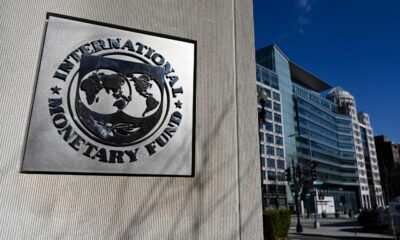

IMF, Egypt reach agreement for fourth review of Egypt’s $1.2 billion loan request
Egypt and the International Monetary Fund (IMF) have reached a staff-level agreement over the fourth review of the Extended Fund...


Libya’s eastern govt accepts petrol subsidy elimination
In a recent statement, the eastern government of Libya claimed it had reached a consensus on a plan to eliminate...


World Bank suspends loan fees for impoverished countries
To lower borrowing costs for vulnerable nations, the World Bank has announced the elimination of several loan fees. The action...
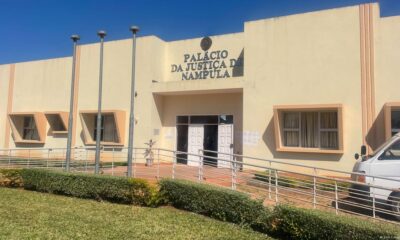

Mozambique’s top court affirms governing party’s victory in recent election
The highest court in Mozambique affirmed Monday that the incumbent Frelimo party won the October election, sparking widespread demonstrations from...


Nigeria resumes mining in Zamfara state
According to the mining minister, Nigeria has removed a five-year restriction on mining exploration in the northwest state of Zamfara,...
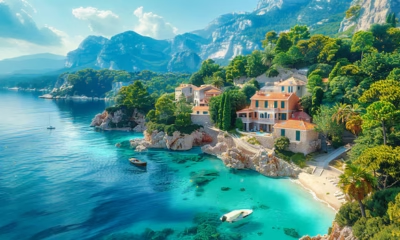

Russian Foreign Ministry claims cargo ship sinks in Mediterranean following explosion
The Russian Foreign Ministry reported Tuesday that two crew members are still unaccounted for after an explosion tore through the...
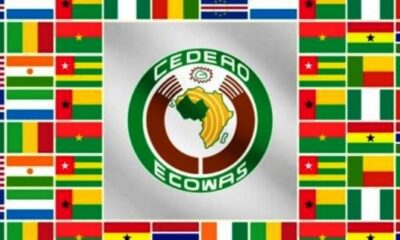

Alliance of Sahel States opposes ECOWAS disengagement schedule
The Economic Community of West African States (ECOWAS) withdrawal timeline has been rejected by the Alliance of Sahel States (AES),...
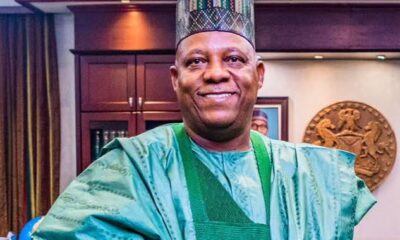

Nigeria’s future is very bright, we’ll overcome challenges, VP Shettima says
Nigeria’s Vice President, Kashim Shettima, has expressed his belief and optimism that the future of the country is very bright...
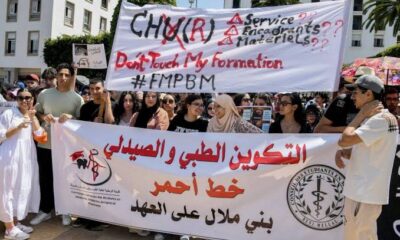

Moroccan doctors stage nationwide protest in ‘Week of Anger’
Moroccan doctors across the country on Tuesday staged a nationwide protests in what is known as “Week of Anger,” accusing...
Trending
-

 Metro1 day ago
Metro1 day agoZambian drug agency declares ex-President Lungu’s daughter wanted
-

 Metro1 day ago
Metro1 day ago‘Pray for leaders to serve you diligently,’ President Tinubu tells Nigerians
-

 Culture1 day ago
Culture1 day agoMoroccan doctors stage nationwide protest in ‘Week of Anger’
-

 Politics10 hours ago
Politics10 hours agoMozambique’s top court affirms governing party’s victory in recent election


